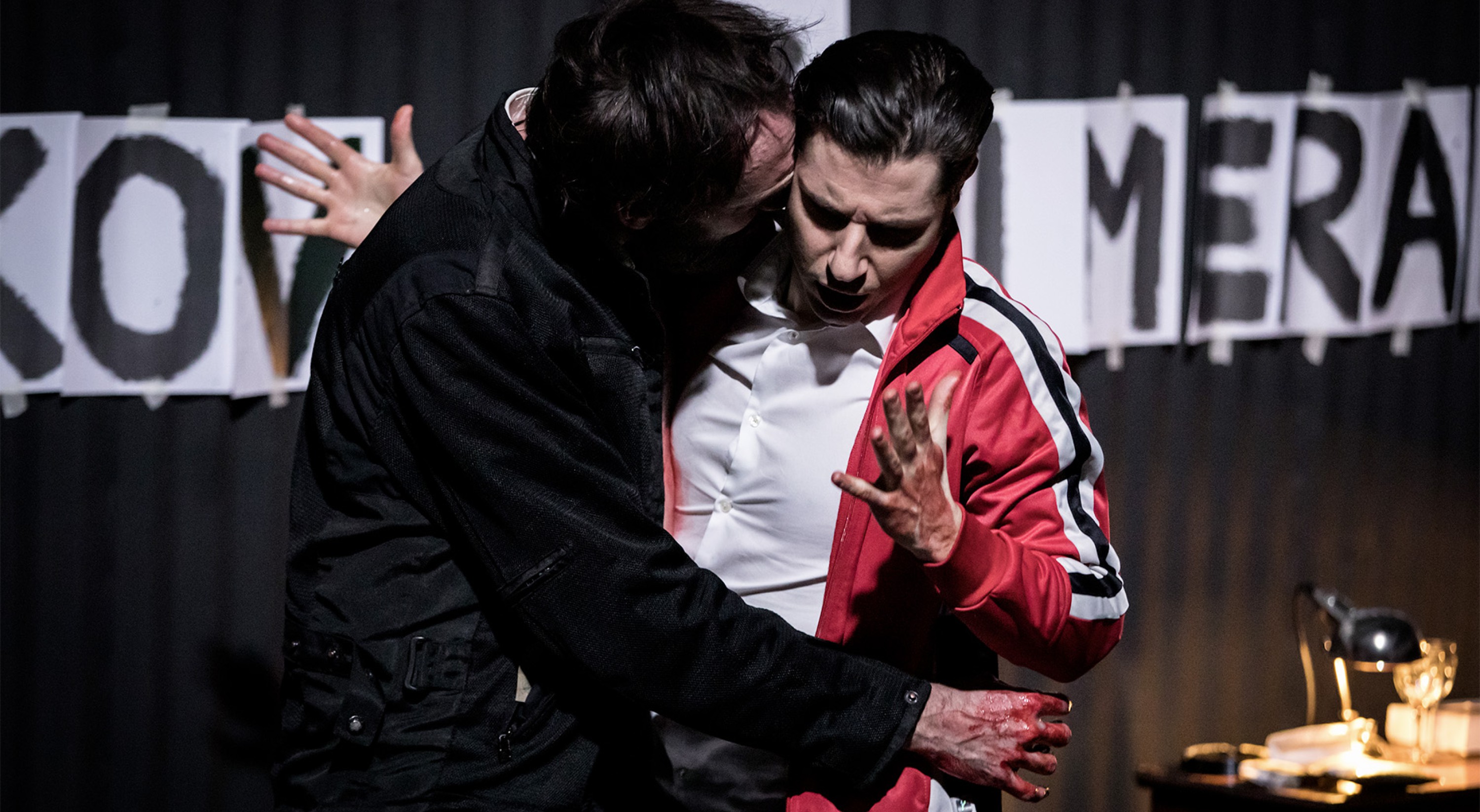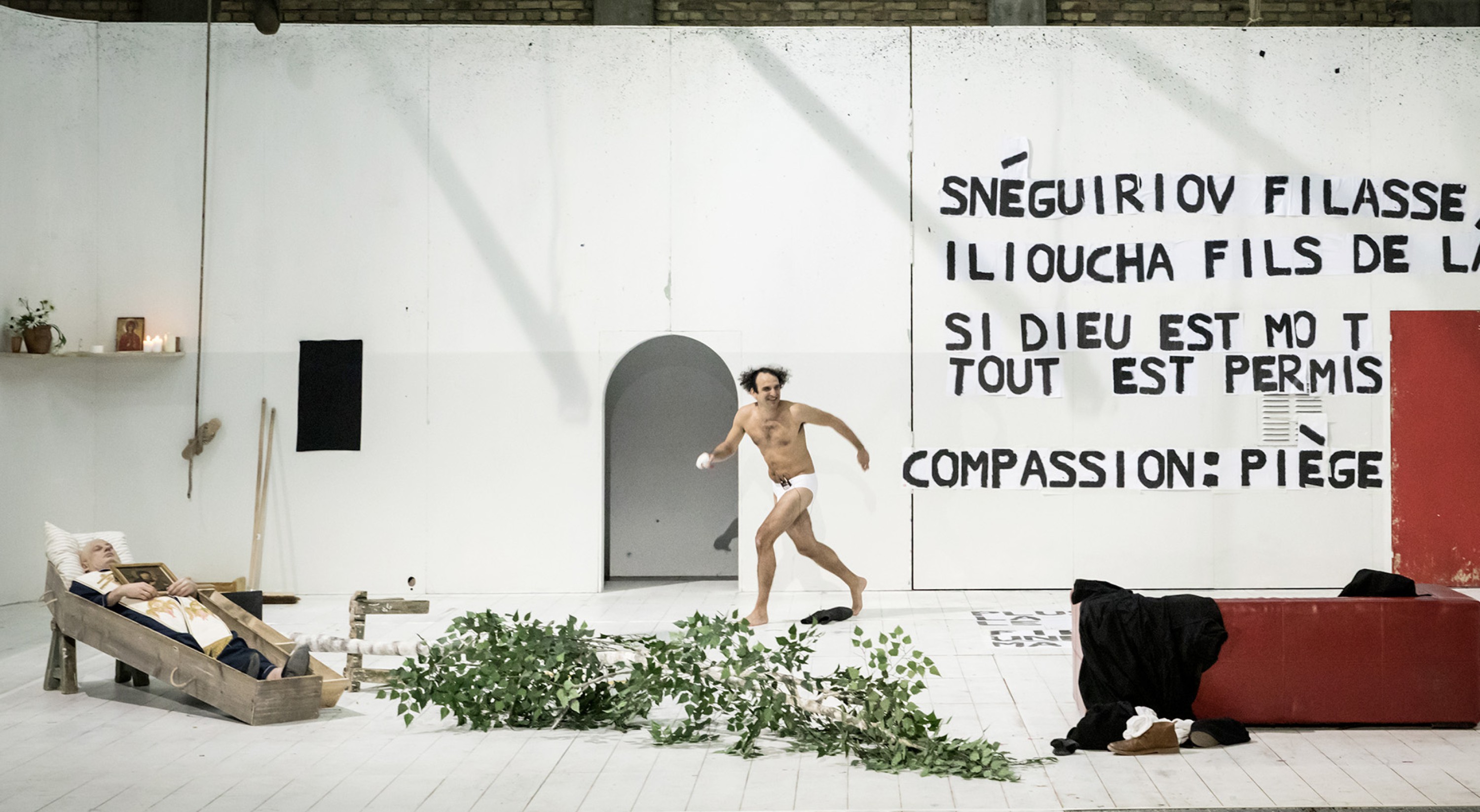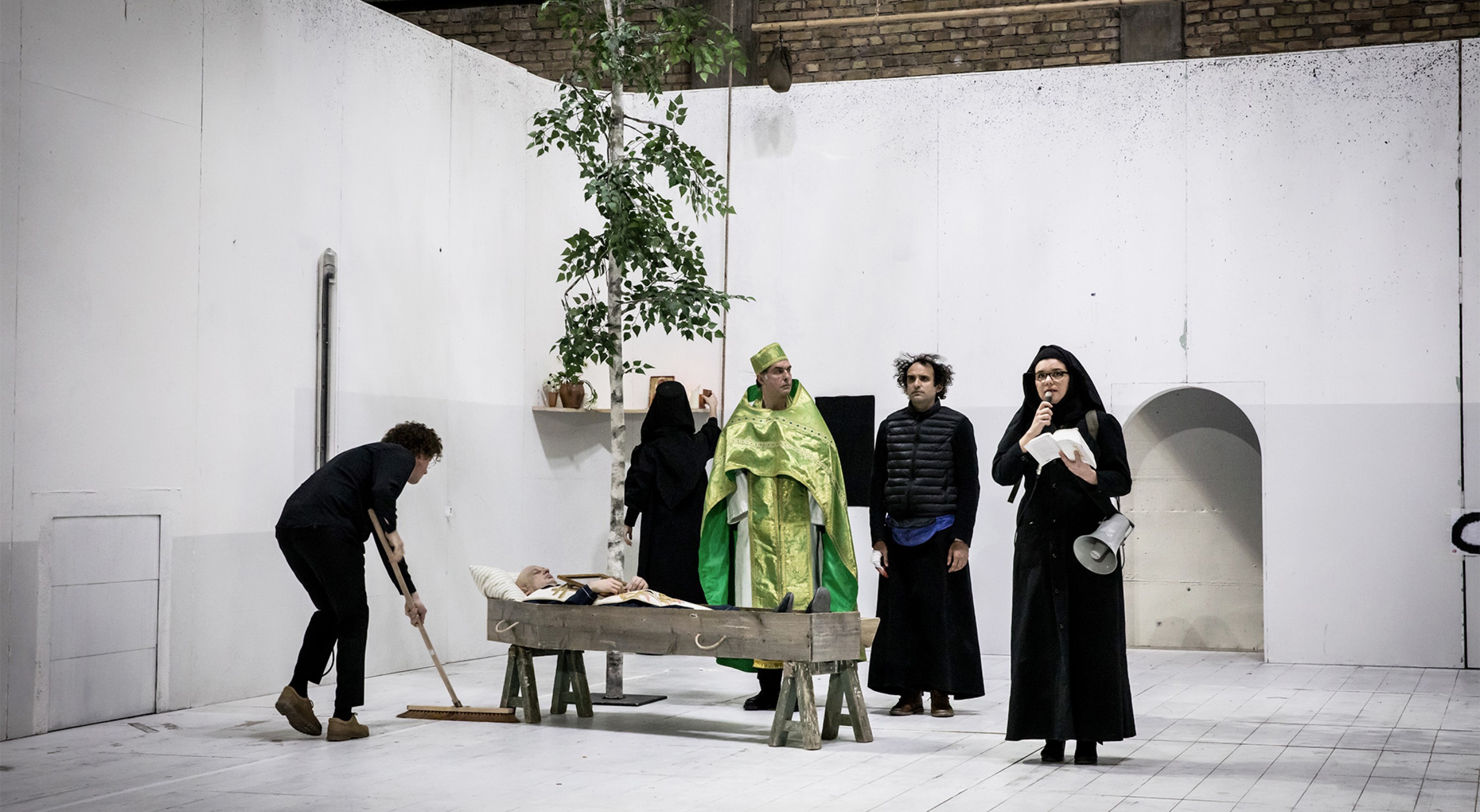Sylvain Creuzevault
Les Frères Karamazov
octoberoct 21 – 22
novembernov 30 - december – dec 30
januaryjan 6 – 22
Adapted and staged by Sylvain Creuzevault
Based on The Brothers Karamazov by Fyodor Dostoevsky, translated into French by André Markowicz
Featuring Sylvain Creuzevault, Servane Ducorps, Vladislav Galard, Arthur Igual, Sava Lolov, Frédéric Noaille, Patrick Pineau alternating with Nicolas Bouchaud, Blanche Ripoche, Sylvain Sounier, and musicians Sylvaine Hélary, Antonin Rayon Dramaturgie, Julien Allavena
Stage design, Jean-Baptiste Bellon
Lights, Vyara Stefanova
Music created by Sylvaine Hélary and Antonin Rayon Son, Michaël Schaller
Video, Valentin Dabbadie
Makeup, Mityl Brimeur
Masks, Loïc Nébréda Costumes, Gwendoline Bouget
Produced by Le Singe
Co-produced by Odéon-Théâtre de l’Europe (Paris); TNS – Théâtre National de Strasbourg; L’empreinte, Scène nationale Brive-Tulle; Le Théâtre des 13 vents – Centre dramatique national de Montpellier; Théâtre de l’Union – centre dramatique national de Limoges; La Coursive – Scène nationale de La Rochelle; Bonlieu scène nationale Annecy; Festival d’Automne à Paris
With support from Oara – Office artistique de la région Nouvelle- Aquitaine – Bordeaux
The company receives support from the Ministry of Culture/Drac Nouvelle-Aquitaine
Co-directed by Odéon-Théâtre de l’Europe (Paris); Festival d’Automne à Paris
Dostoyevsky has been one of Sylvain Creuzevault’s obsessions a while now time. In this latest production, he tackles The Brothers Karamazov, turning the theatre into the place of the interior conflicts and theological soul-searching of these mythical, flamboyant characters.
With his company, Le Singe, Sylvain Creuzevault has been unceasing in his efforts to bring to the stage the modern invention of politics and to dissect the history of socialism. Dostoyevsky’s work is a key element in this artistic quest of gigantic proportions: following on from The Devils, Crime and Punishment, and The Adolescent, the director now tackles The Brothers Karamazov. The intrigue seems a simple one: Fyodor Karamazov is murdered. Who is guilty? The author uses the story of a patricide in order to confront himself with the metaphysical and political questions which weigh on his mind: the confrontation between good and evil, guilt, the artificial nature of faith, and the reconciliation between divine law and earthly law. And whilst Dostoyevsky criticises the institution of religion and its thirst for power, faith still finds a place within the novel. All of his reflections are given flesh and blood in this crime story of farcical allures. The difference, however, is that this is farce of an uneasy, grinding nature which does away with convictions and distils the destructive power of laughter. These are amongst the many ambiguities that Sylvain Creuzevault brings to the stage without shying away from the narrative pleasure of The Brothers Karamazov. Romantic and fantastical in equal measure, the work is a blend of different genres, in response to which the stage offers a magnificent playground for this unclassifiable novel.
See also



